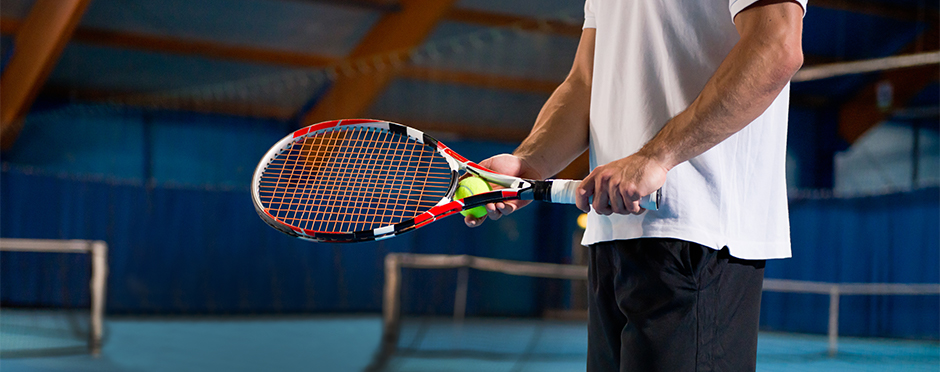
The 5 Dirtiest Pieces of Sports Equipment
3 CommentsIt’s no secret that sporting equipment can bring a rancid smell home. There are many excuses as to why people don’t wash their equipment: they forget it in the locker room, they are too tired, or they just have better things to do. Yes, there are more thrilling activities, but cleaning your gear can prevent bacteria, yeast, viruses, fungus and mold from growing. Tip: Smell your gear. If it smells foul, it’s probably time to clean it.
Sure, you say, maybe you’re on to something. But which stuff even needs to be cleaned? I’m so glad you asked, and the answer is all of it. Here are some of the dirtiest pieces of sporting equipment and how to clean them!
1. Shoes
Sweat glands are all over your body, but there are significantly more located in your feet than in any other area of the body. When the temperature of your body rises during activity, sweat glands produce water to regulate your body’s temperature. Since the same shoes are worn every day in practices and games, moisture can get trapped inside your shoes. This creates an ideal environment for bacteria to grow. One way to prevent this is to let your shoes air dry by unlacing the shoe and pulling the tongue toward the toe. To really combat that shoe stench, you can also spray them with a disinfectant spray. It is also worth noting that insoles can be removed and replaced when needed.
2. Pads and Helmets/Headgear
Pads and helmets for contact sports tend to get left in lockers and neglected until the next day’s practice. Without proper cleaning, you can imagine how dirty they get by the end of the year. Your protective gear is also contacting your opponent repeatedly, creating a transfer of sweat back and forth. Pads should be cleaned regularly with disinfectant spray or wipes for the parts with harder surfaces. If you do not clean them regularly, you must air them out to prevent an accumulation of moisture.
3. Balls and Rackets/Bats/Clubs/Sticks
Anything athletes touch with their hands can be considered unclean. We carry a lot of germs and pass them through touch. When was the last time your basketballs were disinfected? When was the last time you changed your grip on your racket or stick? Each practice, multiple people touch the same basketball, football, tennis ball, baseball bat, or other equipment. Coaches, players, referees, managers, and even the random person who threw the ball back after it rolled to them: they are all touching that game ball and passing their germs to your athletes. Even if you use the same racket or club every day, you are collecting all the germs you touch and spreading them back to yourself every time you pick it up. I can’t stress it enough: make sure to wipe down your equipment! This is a simple way to prevent illnesses that can spread through the team.
4. Practice Jerseys
Regular jerseys are only worn on game days, which usually leaves ample time for cleaning. However, practice jerseys are often neglected. Many sports require athletes to wear their practice jersey to every practice. Most of the time athletes will stuff them in their lockers after practice and wear them every day. Bring your jerseys home, and most importantly, wash them!
5. Water Bottles
How often do you wash your water bottle? Do you wash the outside of the bottle? All athletes have forgotten to bring their water bottle to a practice before. Instead of making a trip to the water fountain, teammates may share their water instead. Not only are they transferring germs through backwash in the water bottle, they are also transferring their germs to the outside of the water bottle when they touch it. This is another way that illnesses spread through teams. Always wash your water bottle and refrain from sharing!
Keeping it Clean
By doing your part when it comes to cleaning sporting equipment, you can help prevent the spreading of illness and disease – from colds to skin infections. If you have questions about how to properly clean a piece of equipment, don’t hesitate to reach out to your athletic trainer. Athletic trainers play an important part in keeping athletes healthy – not only when it comes to injury, but also when it comes to keeping sporting equipment clean and sanitized.
To learn more about Athletico’s Athletic Training Outreach, click the button below.
The Athletico blog is an educational resource written by Athletico employees. Athletico bloggers are licensed professionals who abide by the code of ethics outlined by their respective professional associations. The content published in blog posts represents the opinion of the individual author based on their expertise and experience. The content provided in this blog is for informational purposes only, does not constitute medical advice and should not be relied on for making personal health decisions.

3 Comments
John Ryan, PT, DPT
This is interesting stuff. Never knew this. Dr. John Ryan, PT, DPT
Eliza Barter
Thank you for reading!
PB
Informative, practical and nicely written with care. Great job.